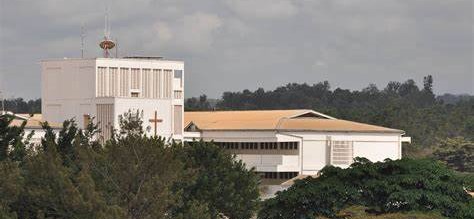People with Albinism are appealing to the government to increase the issuance of sunscreen lotions as well as sunglasses and other shielding kits to protect them against threats of skin cancer.
The Director of Foundation for Disability Hope, Michael Salali pointed out that people with albinism are extremely susceptible to getting skin cancer.
“And many of them happen to come from poor families that cannot afford to buy screen protecting lotions, sunglasses and other outfits,” said Salali, adding that like any other persons with disabilities they also need assistance.
According to the World Health Organization, the life expectancy for cancer victims with albinism is only 40 years in Africa, but with less support this age ceiling may drop much lower.
“In Tanzania only 2 percent of persons with albinism manage to survive up to the age of 40 years,” explained the FDH Director.
Albinism is a genetically inherited disorder resulting from lack of pigmentation (melanin) in the hair, skin and eyes resulting in vulnerability to the sun and bright light.
Salali said most people with albinism across the country have been prone to suffer from skin cancer.
The FDH Director is also concerned that the Kilimanjaro Christians Medical Center (KCMC) of Moshi, through its Kilimanjaro Sunscreen Production Unit (KSPU) has reduced production of the sunscreen lotions used in the country.
Kilimanjaro Sunscreen Production Unit was established under Regional Dermatology Training Center in collaboration with the Ministry of Health and Social Welfare to provide Persons with Albinism (PWAs) of Tanzania quality sunscreen protection.
Now, the KSPU, is the only facility in the country which produces and freely distributes locally-made sunscreens, dubbed, ‘Kilisun’ specifically produced for the people with albinism across Tanzania.
It has also been observed that many people living with albinism cannot afford protective gear to shield them from scorching sun, such as wide-brimmed hats and long-sleeved clothing.
Observers and other health experts believe it is now time for the establishment of skin-cancer centers in all regions where arising problems can be addressed at localized locations.
The Foundation for Disability Hope implores the government to facilitate the production of sunscreen lotions at the Christians Medical Center (KCMC).
“The Kilimanjaro Sunscreen Production Unit should be supported to resume the full production of the protective oils,” said Salali.
There are alternative sun screens applications being either imported or produced by different establishments, however these are said to be too expensive, less-available and out of reach for many.
One of the persons living with albinism Ligoha Meshak, a resident of Chamwino District in Dodoma recalls losing his sister from skin cancer.
It is reported that at least one child, out of 1429 live births, is born with albinism in Tanzania.
In Africa, One child out of 4000 live births is born with albinism.
Data from the Tanzania Albinism Society (TAS), indicate that there could be 18,833 persons living with albinism in the country.
However the World Bank pegs the ratio of people with albinism in Tanzania against the country’s population at 1:1429, which means there should be at least 41,000 people that are living with albinism.



